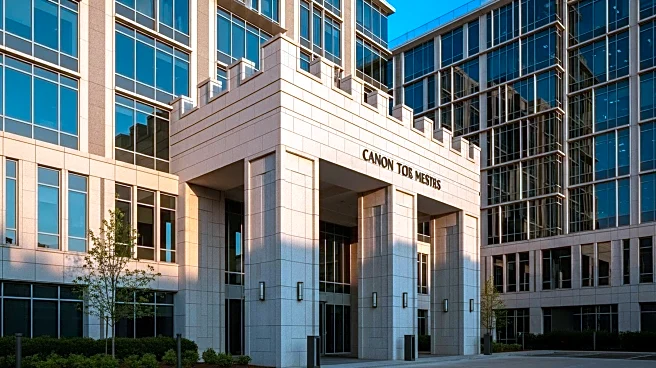What is the story about?
What's Happening?
Fortress Investment Group, a major asset management firm, has acquired a 20% stake in Esquire Law, an Arizona personal injury law firm. This acquisition is part of a state program that permits non-lawyer ownership in legal operations, a model that is relatively new and experimental in the U.S. legal industry. The interest was disclosed in an application to the Arizona Supreme Court, which was obtained by Bloomberg Law through a public records request. CF ESQ Holdco, tied to Fortress, is the entity holding the stake, with Jack Neumark, Fortress' president and managing partner, as the authorized signatory. Esquire Law, primarily focused on car accident cases, has recovered over $10 million for injured plaintiffs in Arizona. The firm is majority-owned by partners at Steinger, Greene & Feiner, a Florida law firm. Fortress, with $53 billion in assets under management, has been increasingly involved in litigation finance, committing $6.6 billion to this sector in 2024.
Why It's Important?
The involvement of Fortress Investment Group in Esquire Law marks a significant development in the legal industry, as it represents one of the first instances of a major investment firm participating in a non-lawyer ownership model. This could potentially reshape the landscape of legal services by introducing new financial dynamics and operational structures. The move may enhance access to legal services for individuals who lack financial resources, as the alternative business model aims to address such disparities. Additionally, Fortress' substantial investment in litigation finance underscores the growing interest and potential profitability in this sector, which could lead to increased competition and innovation in legal funding. Stakeholders in the legal industry, including law firms and litigation funders, may need to adapt to these changes as non-lawyer ownership models gain traction.
What's Next?
As Fortress Investment Group continues to expand its involvement in litigation finance, other asset management firms may follow suit, exploring similar opportunities in states that allow non-lawyer ownership of law firms. This could lead to broader adoption of alternative business structures across the U.S., potentially prompting regulatory changes in jurisdictions that currently restrict non-lawyer ownership. The success of Fortress' investment in Esquire Law may serve as a case study for other firms considering similar ventures. Additionally, the impact on access to legal services and the overall efficiency of law firms operating under this model will be closely monitored by industry experts and policymakers.
Beyond the Headlines
The introduction of non-lawyer ownership models in the legal industry raises ethical and operational questions about the influence of financial interests on legal practices. Critics may argue that such models could compromise the independence of legal professionals, while proponents believe they could democratize access to legal services. The long-term implications of this shift may include changes in how legal services are marketed and delivered, potentially leading to a more client-centric approach. Furthermore, the involvement of large investment firms in the legal sector could drive technological advancements and efficiency improvements, as these firms bring their expertise in financial management and innovation.

















